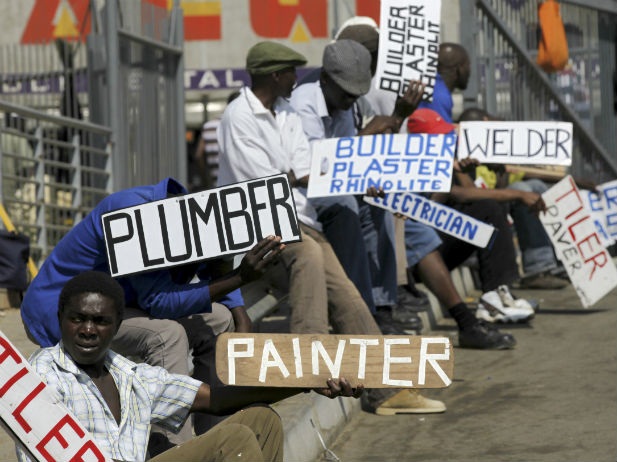Of all the numerous challenges posing a threat to Africa’s prosperity and well-being, unemployment occupies the lion share. Whether this challenge is causing African leaders sleepless night is something I am not so certain about. The challenge of unemployment is multi-faceted; in the sense that it’s one challenge that champions a couple of other problems. It also has the ability to defy the effort and achievement made in other areas of the economy. Unemployment is a colossal time bomb to any economy. No government has been able to solve it by folding its hands and doling money to the unemployed.
Any sincere government official in Nigeria can attest that the neglected huge figure of unemployment and abandonment of youth in Northern Nigeria is directly and indirectly responsible for the unrest caused by Boko Haram in Northern Nigeria today.
Experts on economic matters have projected that Africa must create about 54 million new jobs by the year 2020. The other frightening side of the story is that during that period, about 122 million Africans would have entered into the unemployment market afresh. And it is important to note that the 122 million that would be joining the labour force will not include the several millions of presently unemployed people. These realities are quite overwhelming to say the least, but the whole essence of leadership is solving problems and making the lives of people better. African leaders need to see this huge unemployment figure just the way it is and not just assume that it is a challenge that would be surmounted by brilliant discussions and conversations at economic conferences and forums.
There is no doubt about the fact that Africa seems to be at a pivotal point today, going by the reports that says that half of all Africans are under 20, and over half of the world population growth between now and 2050 is going to happen in Africa. This forecast by itself comes with several mixed feelings. Mixed feelings in the sense that with a huge youth bulge like this, you should be excited that these figure will help harness demographic dividend in several ways, that this would help pilot the economy toward substantial growth and development, but then you look at many African governments and you can see, smell and tell from their body language that they would rather care about things that would bring about instant gratification.
But as it is today, I really would like to encourage world leaders to know that the unemployment challenge in Africa should be seen as a global challenge and should be tackled as such. I am stating this because if globally the world becomes undisturbed by the current unemployment challenge, the African continent will again become a majordrag-back, diminishing global growth and development.
African leaders need to learn to start solving their challenges with a huge sense of urgency, innovation and passion. Not just by coming up with quick fixes here and there that only make the challenge less boggling for few years. In tackling the unemployment issue in Nigeria for instance, I was shocked that recently, at the on-going national confab, the issue of paying unemployed graduates a monthly stipend was raised as a solution to Nigeria’s unemployment. What a thought! We all know of the many scams that haven’t felt the touch of proper investigation, let alone justice, and then we ask the Nigerian government to pay the unemployed a monthly stipend. No doubt, it will end up as another big scam.
One would have thought that so much attention and engagement will be channelled towards building infrastructure, transportation, reviving our manufacturing and processing industries, fix power that has remained epileptic for as long as Nigeria itself. How do we solve unemployment issues when many African nations still lack what it takes to convert many of its own natural resources into finished product? Nigeria’s inability to create finished products is the major reason unemployment has become our constant companion. Do we really need a gang of economic experts to diagnose our problems? To a great extent they are very obvious. We need to build infrastructure so our raw materials can be processed into several high quality products and then imported to other nations or continents of the world. Till then, our inability to create true wealth and prosperity will be more deafening with time.
I am @Lanre_Olagunju on Twitter.
Photo: Courtesy, CFR
Lanre Olagunju is an hydrologist turned freelance journalist. He has a degree in hydrology from the University of Agriculture Abeokuta and a professional diploma in journalism from the American College of Journalism. Lanre advocates on several international platforms for the prosperity and absolute well-being of the African continent. He's @Lanre_Olagunju on Twitter.



